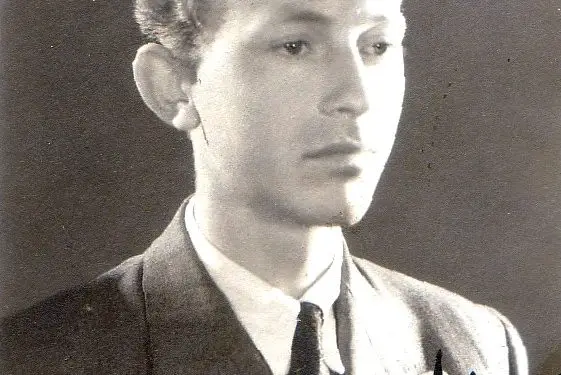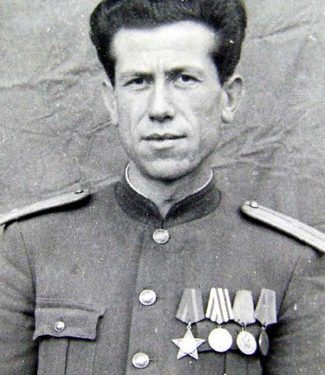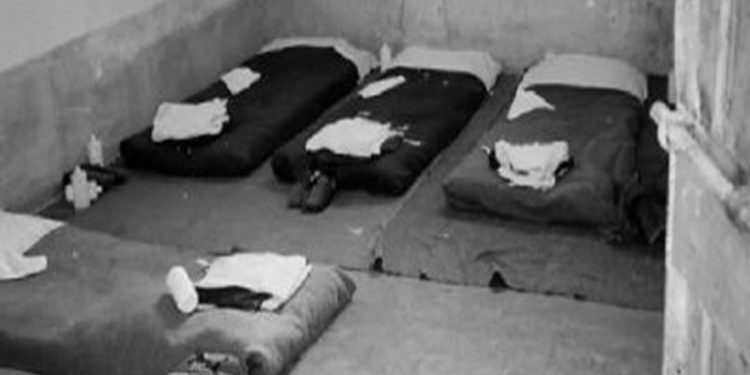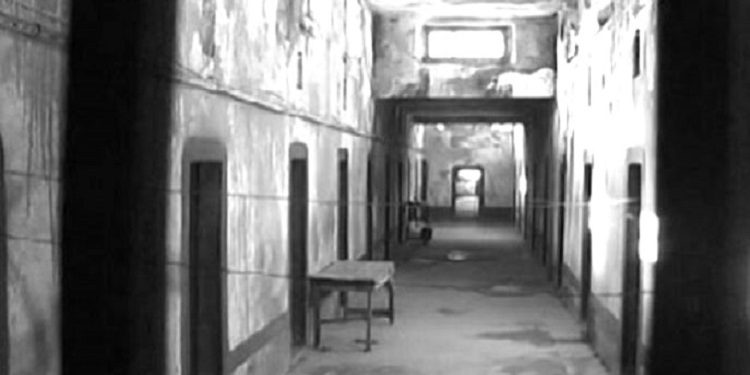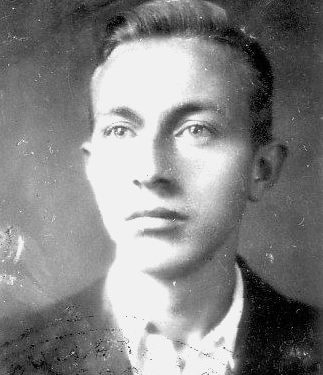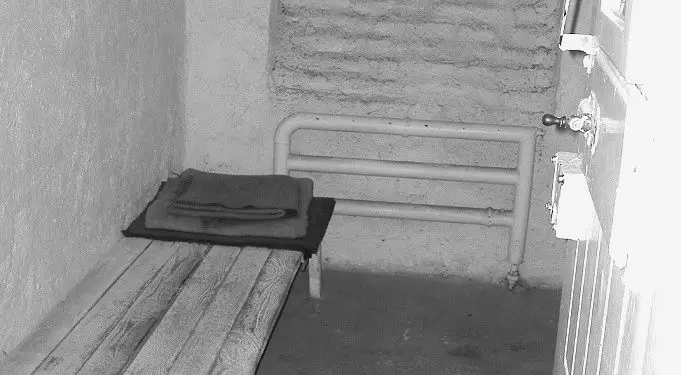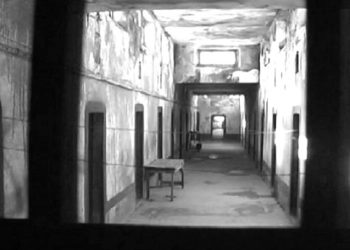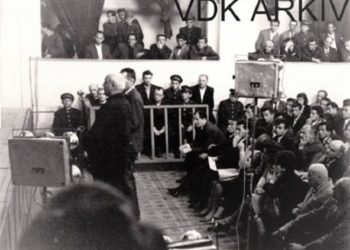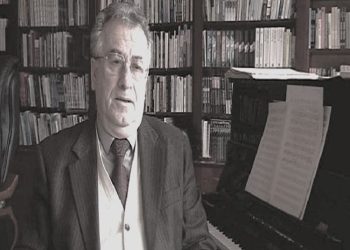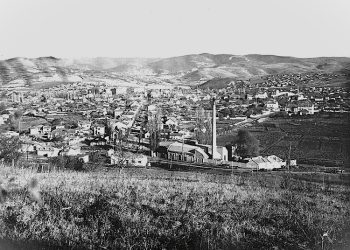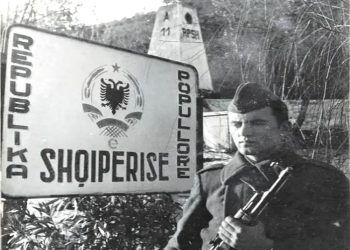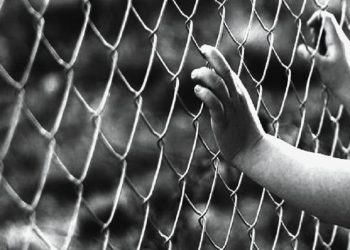By Uran Kalakulla
Part thirty-one
Nazism and communism
Memorie.al / Nazism lasted 12 years, while Stalinism lasted twice as long. In addition to many common characteristics, there are many differences between them. The hypocrisy and demagogy of Stalinism was of a more subtle nature, which was not based on a program that was openly barbaric, like Hitler’s, but on a socialist, progressive, scientific and popular ideology, in the eyes of the workers; an ideology that was like a convenient and comfortable curtain to lie to the working class, to lull the sharpness of intellectuals and rivals in the struggle for power.
One of the consequences of this peculiarity of Stalinism is that the entire Soviet people, its best, capable, hardworking and honest representatives, suffered the most terrible blow. At least 10-15 million Soviets lost their lives in the torture chambers of the KGB, martyred or executed, as well as in the gulag camps and others like them, camps where it was forbidden to correspond (in fact, they were prototypes of the Nazi death camps); in the mines in the ice of Norilsk and Vorkuta, where people died of cold, hunger, from crushing labor in countless construction sites, in the exploitation of forests, in the opening of canals and during transportation in leaded wagons, or in the flooded barns of the death ships.
Continued from the previous issue
It was not the fault of the poor man who was shaking like a perch, worse than the rest of us. We sat him down among us and someone gave him a ragged blanket to throw over his arms. I asked him if he had eaten dinner and if he was hungry. When he said he was terribly hungry, each of us took a loaf of bread out of our sack (which we had barely saved for the next morning), and we gave it to him. He began to eat greedily, as if he had not eaten anything for a week.
Neither we nor he could see each other’s faces well in the darkness where we were, but we could only distinguish their silhouettes: like ghosts, without precise outlines, but like a brown spot that moved from time to time. If someone who believed in the existence of ghosts had been introduced among us, he would surely have been terrified in that world of darkness, like in Dracula’s castle.
Finally, the hour (which we had been eagerly awaiting) came for bed. Then, we crammed in a bit and made room for the newcomer among us, trying to cover him as best we could, even sacrificing some of our own, very few and thin blankets. We went to sleep. At five in the morning, the policeman’s wild wake-up call rang out (as usual). And we began to get up and get dressed again. The door would open to go to the bathroom, to wash our eyes or fill our gourds with water, a daily routine, as we knew very well.
But when we returned to the room and were waiting for tea time (without sugar, of course), for the tea to be poured, we noticed that the Italian was really no longer moaning and sighing, but there was an expression of obvious fear on his face. And, as he looked at us in turn, his eyes were narrowed, as if he were on the edge of a deep abyss. What the hell was wrong with him now? We asked him again.
And he answered us all afraid, with a trembling voice: – “Why did they bring me here to you? Who are you? They told me they would take me to the politicians, but, as far as I can see, they deceived me”.
– “No, they didn’t deceive you for that. We are all here as political prisoners”.
– “Bah, you politicians? No way”!
– “Politics and, even, with horns”! – joked Shaban Basha, who spoke the newcomer’s language like an Italian.
– “How is that possible? You look like criminals, like the pirates I’ve seen in movies in Italy: with fangs and beards”.
When Shaban translated what the Italian had said to us, we all burst out laughing, which scared the poor Italian even more, who was not immune to the fever of fear. The crows! But, slowly, things with the Italian calmed down, especially when he saw that not only were we not criminals or bloodthirsty pirates, but we often cut off a piece of bread from our anemic ration and gave it to him, who had an insatiable hunger. Once, he noticed our sacrifice, our behavior and, then, completely changed his attitude and approached us, not only calm, but also very loving and grateful. And one day he spoke openly:
– “Oh, I got it! I have offended you unintentionally and please forgive me. You are wonderful people. I was afraid of you Balkans, because, in my country, I had heard that you are savages and that you kill each other in vain, for taste. Please forgive me once again”.
When the conversations became somewhat more intense, even in the field of politics, he confessed to us that, although he was not a party member, he had been in favor of the Italian communists and had always voted for the Togliatti party, despite all the fuss his wife made about him, who, on the contrary, voted for De Gasperi’s Christian Democrats.
– “Yes, why did you vote for the Communist Party”? – Shabani asked. – “I am poor in my country. I am a fisherman in a coastal village in Puglia and I don’t even have my own fishing boat. I work for my employer, who takes the lion’s share of the profits from my work. Then, when I saw on the TV screen how Togliatti shed tears when he spoke about the working class, then I cried too and, of course, I gave it to his representative in our village, despite the great fuss my wife made at me”.
– “Because you are a wise woman”, – Shabani replied. And he continued: – “Here, this reality, which you see here where you are now, is communism, my friend. Here, such a ‘happy, prosperous and just’ society will be built in your Italy by the party of Togliatti and his friends, if you come to power. Do you understand, my poor friend”? The Italian nodded thoughtfully in affirmation and continued:
– “I know now how I will act when I return to my country.” I will return as soon as possible, oh God. I know what I will say and what I will do to those communists of my village, so that they will not have eyes or cheeks or open their mouths and no longer ask for votes from us workers and peasants”!
And Velko finished the conversation about the unfortunate Italian: – “As we later learned, that coward had been caught by the Albanian coast guards while fishing near your coast, without realizing at all where he had gotten himself into or who he was dealing with. Meanwhile, his wife had gone to the Italian Foreign Ministry and even to the Pope, about her husband’s disappearance.
It is said that she had also written to the President. And perhaps these efforts were successful, because they did not last long, only a few months, the Italian was released and allowed to return to his country, although he had been sentenced to three years in prison. He fled, as did the two Germans a little later, while we remained in the prisons and camps of Albania, like shadows in eternal hell”.
Exposing and leaving for Burrel
In the Elbasan prison camp, the works had already been completed. The cement factory had been handed over to the workers and the (free) engineering-technical staff of the production. We were kept locked up in our usual place with prison food. We had spent a very hard winter: with frost and snow. And our silos were made of straw, where it was much windier inside than outside.
And we, to protect ourselves at least a little, had not left a rag without throwing it on our backs. So we looked like some scarecrows of the fields. But, apparently, to “warm us up”, they had brought us a new commissar, who from time to time gave us conferences, to “re-educate” us, the “great culprits, the incorrigibles of all life”.
So, we were in a kind of quarantine. But the truth was that they were going to send us to the new camp-prison, which was being built by the orderlies in Spaç of Mirdita, in the mine. So, after we had canalized, reclaimed almost the entire country, with our bones and lives, after we had built entire neighborhoods of cities and especially of the capital, factories and combines, almost throughout the entire country, it was now time to go underground. We had breathed enough fresh air! Even though we knew this, the commissioner continued his “educational” conferences, which, more than educational, were corrosive like acid.
This “glorious” commissioner of ours, like his party that had brought him there, was called Niko Kolithari. Like Niko, he must have been from the Korça side. And this surname “Kolithari”, which sounded like “Zorrë-thari” to me, where the hell had it come from, how had it been invented?
Because, by faith, I had never heard such a damn surname. Because he seemed close to some other names and surnames that were ugly to the point of disgust, such as: Enver Hoxha, Koçi Xoxe, Mehmet Shehu, Kadri Hazbiu, Bajram Korvarfa, Haxhi Xibraku. They reminded me of the images of the Janissaries, dressed in leather from head to toe, like wild animals, attacking the fortress of Kruja, in the movie “Skënderbeg”.
This Kolithar also had the rank of colonel. Who knows how much meanness he had done in the State Security, for such a rank? Yes, after all, were ranks in the communist uniforms anything serious!
Kiçua was a tall scoundrel and almost under his hood there was nothing but bones. There was nothing uglier than that! By the hell had they ordered him to the genie and had they worked too hard to find him? Maybe they had made him a commissar because he was the classic image of death!
His elongated face resembled the leaves of a withered linden. His eyes were like red phlegm, sometimes yellow, sometimes red, and his nose was a thin dagger, with a point at the end and a clearly visible saddle, while his mouth was like an open wound, from which protruded a few teeth like those of a horse, yellow and as if they had just ground a thorn from their master’s bag.
Or didn’t he have a voice like a creep, this Kolithari! With some screams that resembled a rabid cat or when it is in a state of sexual arousal. And, in particular, his speech. Not only in content, but also in form, it was disgusting. The greatest philosophy or culture of Kicho was a popular expression of his side: “Zulal knows how much cabbage he puts on the horse,” says a popular expression of his side: And, in my imagination, Zulal and the horse were the same being embodied in Kolithari himself.
That Kicho was truly like a lame horse: with protruding ribs, a thin neck and a jagged jaw, something like Don Quixote’s Rocinante. Well, Kolithari was Rocinante, something like Don Quixote’s Rocinante, but who should have been Don Quixote? Enver Hoxha, who wanted to grab America on his spear, or Mehmet Shehu, who even angrily declared war on America and Russia at the same time?
Kushedi! But alas, these Don Quixotes of the unfortunate history of Albania were not noble, honest, virtuous and dreamers of good, like Don Quixote of La Mancha. They they were neither noble nor honest men. For history, they were palacios, while for the people, bloody executioners, never satiated with the blood of the innocent.
It was clear that, like many of his comrades, from such a fatal inheritance, Kicho Kolithari had also emerged. He too, in the middle of his den, had a poisonous snake coiled up, which, from time to time, he would bring out from within, to bite one or more victims; as if it were good for him and his party.
So it happened that, one day in early April, while we were warming ourselves in the spring sun to bring our bones out of the frozen of the just-past winter, the whistles of the captains rang out with a shrill cry and, with them, the ugly cry of the camp bell.
What had happened? We had a conference with the commissar!! U We gathered in the square as best we could, sat down on the ground and waited. Finally, the camp door opened and the silhouette of the uniformed scoundrel appeared. When he happened to be near us, he gave us a fierce look and, with his lips hanging down, immediately began to speak:
– “Listen here! I have come to tell you that, among you, there are some dangerous elements, sworn and irreconcilable enemies of the party and the people’s power, who, even here surrounded, are not doing well, are trying to work to create hostile forms of organization, counter-revolutionary, terrorist, imperialist-revisionist organizations!
They want to mold you and the rest of you and take you by the throat, as the enemies of the people have often done with their ordinary people. So, open your eyes and, as soon as you dictate something, tell us that we can easily replace those sworn enemies”!
Kolithari had started his calculation a little too high. On the one hand, there were very dangerous enemies of foreign espionage hidden in the camp (something like the character of spy movies, for example, a kind of James Bond or 007), and, on the other hand, there were naive, simple, innocent people, who might love the party and the people’s power, but were spoiled by these black-faced agents. Come on, comedy, come on! Comedy or tragedy? Because, that wedding that had started with so much “saze”, could not go without meat. But who would be the sacrifice? How many sacrifices would be needed for it?
And the commissar continued: – “Enemy elements, like Uran Kalakulla, have established a social-democratic party here with him as chairman and are doing imperialist propaganda, while elements like Bardhyl Belishova and Vangjel Lezho are doing the work of the Soviet revisionists.”
I had sensed something about the accusation that was made to me, some time ago, when the camp operative, a certain Vlonjat named Remzi, red-faced and swarthy, accused my former groupmate, Tanush, of such a thing. Yes, why Tanush, and not me directly?!
I knew that Vangjel Lezho, although he had been in our common camps for some time as a chief economist and, later, also as the head of the technical office, with his comrades, with whom he ate bread, did not fail to talk about his nostalgia for Moscow and his great appreciation for Russian literature. Perhaps he talked even more.
But I was no longer involved in political organization work, especially in prison. The reality that I had before my eyes and the uncertainty, or rather, the uselessness of such work, in addition to the real danger it posed, had erased such a goal from my mind. In fact, my social circle was quite limited and very controlled, trusted, and selected.
In fact, I talked to people, not so much about the politics of the day (I read this in the newspapers), but about some interesting ideological issue, some cultural topic, which had nothing to do with the art of “socialist realism”. But they were measured conversations, with trusted, serious, and experienced people. After all, I was careful not to ramble on without thinking, so that when I did, I would not know at all where the trouble had come from. I also advised others in whom I had confidence to do the same. Especially since the atmosphere in the prison was getting worse and worse.
As soon as Kolithari finished his accusation, I was ready to stand up and protest loudly, right in the middle of the people, but, swearing on my son’s head, two pairs of hands grabbed me from behind and wouldn’t let me get up. They were two of my friends, good and loyal, who knew that what I was doing for my son’s head was an inviolable law for me. But, if we had done it in words, Bardhyl Belishova stood up in my place and slapped Kiço in the face with great courage, saying, as far as I remember, more or less these words:
– “I am not a revisionist, just as I am not and have never been a communist. And I hate both of them, because for me they are two sides of the same coin. But I hate you even more, your party and your government, and from you, I expect nothing but death”!
So said the brave Bardhyl, who did not even weigh 40 kilos. And his voice was so harsh and manly that it stunned not only the condemned (good or bad, even), but also Kolithari himself, who had been left standing like a fool, by the unexpectedness.
After that, the meeting ended. I found an opportunity and broke away from my friends. Now I felt liberated. And I went straight to the place where the commissioner had been standing, surrounded by some serviles, hoodlums and spies. As soon as they noticed me, they immediately opened the way for me and I found myself in front of Kiço, in front of that face that I hated, even without that completely baseless accusation and I said to him:
– “Commissioner Kiçua, I am Uran Kalakulla”! He looked at me once in surprise. According to the information he might have seen in my file, he probably imagined me to be some Catalan and, apparently, he was surprised when a man of average height appeared in front of him, whose command clothes were hanging loosely around his body.
But I did not let him be surprised anymore and, although not with the strong tone of Bardhyl Belishova and his courage, I told him with great determination:
– “I do not deal with such things, for which you accused me, But with my own affairs and only with my own affairs. Therefore, take back everything you said in my address! And, I am forced to add that, if you are able to prove your accusations precisely and not with slander and lies of camp spies, I agree to sentence me to death again and, this time, to hang me right in the middle of the camp”! / Memorie.al




